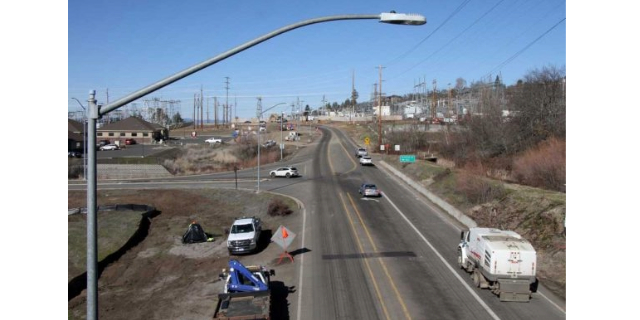ONE PAYCHECK AWAY: A cure vs.temporary approach to solve the homelessness crisis
Published 7:00 am Sunday, February 4, 2024

- Julie Akins
Now that the U.S. Supreme Court has agreed to hear Johnson v Grants Pass, a case in which the city of Grants Pass will be heard on appeal, all eyes are likely to be on our region.
Trending
The city is appealing a ruling by the Ninth Circuit Court of Appeals that affirmed Johnson saying that a person is entitled to do what they can to stay warm and dry while sleeping. If that person does not have a home, that includes being in a tent, under an awning or sleeping in a vehicle.
But for those of us who attend to the needs of our members, many of whom are unhoused or precariously housed as low-income Medicaid patients, we understand the health consequences of homelessness and we seek longer-term answers than the courts will provide.
Our own research in combination with national statistics show it costs roughly two-thirds more in medical care to see to the needs of people without a home. And despite best efforts, outcomes are not as hopeful as they are for people with houses who sleep all night, are able to practice regular hygiene and can keep wounds clean and dry and for whom stress and fear are not minute to minute and pervasive.
Trending
Regardless of how the Supreme Court rules, there will still be homeless people who will need a place to sleep and will need medical care. Nothing the high court decides will solve homelessness. It will merely weigh in on where those unhoused people are allowed to be.
Our interest is attuned to solving the housing crisis that creates homelessness. If all of the people trying to survive in tents had a roof over their head and a door that locked, this case would never have existed. We are interested in a cure rather than a temporary approach which deals only with symptoms. We seek whole person wellness for all of our members and communities.
So, here’s our case: We agree with Gov. Kotek and many of our legislators and community-based organizations who prove that we are thousands of homes behind the need. We agree that this scarcity impacts the cost of housing so that thousands of people who work full time cannot afford a roof over their heads. We observe additionally that thousands of homeless people are senior citizens on Social Security, disabled persons and children.
We know that women and people of color are more heavily impacted by the housing shortage and high costs than other groups of people. We are clear that the income-to-housing-cost ratios are so unbalanced that most people who do not have familial or institutional wealth are locked out of the housing market as purchasers, and rental homes are as expensive or more expensive per month than the cost of a mortgage, should a person be able to qualify.
These are the issues that create homelessness. Homelessness is a housing problem. And that’s where we will find solutions.
Solutions look like allowing more buildings per acre, loosening restrictions on employee housing for farm use land and allowing for greater building on large timber and grazing lots. Many of these kinds of properties no longer farm, harvest or graze, yet the properties are still restricted from building. Those who own these types of properties will not be forced to build housing, but if they want to, there ought to be a path.
We support Gov. Kotek’s suggestion of opening public lands in counties and cities who could create land trusts in their communities for building. And communities need not fear multi-family housing. There is more than one way to live — not everyone can or needs to live in a single-family home with a large yard. But everyone needs a roof over their heads so they can be well.
Nothing about these proposals and others suggested by the governor, land owners, builders and health care providers need be concerning to communities nor the environment. The very geography of Oregon with its numerous wetlands, mountain ranges, coastal cliffs and protected forests does not lend itself to sprawl, and it’s not what we favor. We favor balance.
Cash-strapped cities and counties need additional property taxes, owners of working land may want to favor a mixed use where more housing is allowed for their workers, and communities want the ability to experiment with smaller homes, with alternative building methods and greater density where it makes sense.
We do not need to decide between homeless camps or cities; we can decide upon something imminently better that literally works for everyone: allow communities and landowners to house the people living in the street.
AllCare Health is proud of our partnerships with ambitious yet deeply practical community-based organizations who house thousands now and who, thanks to generous grants from folks like our physician-owned company, will be creating many more homes for people who need the simplest of things: food, water and shelter.
We as a society do not have to offer less than what is necessary for life. We can solve this with or without a high court ruling.









